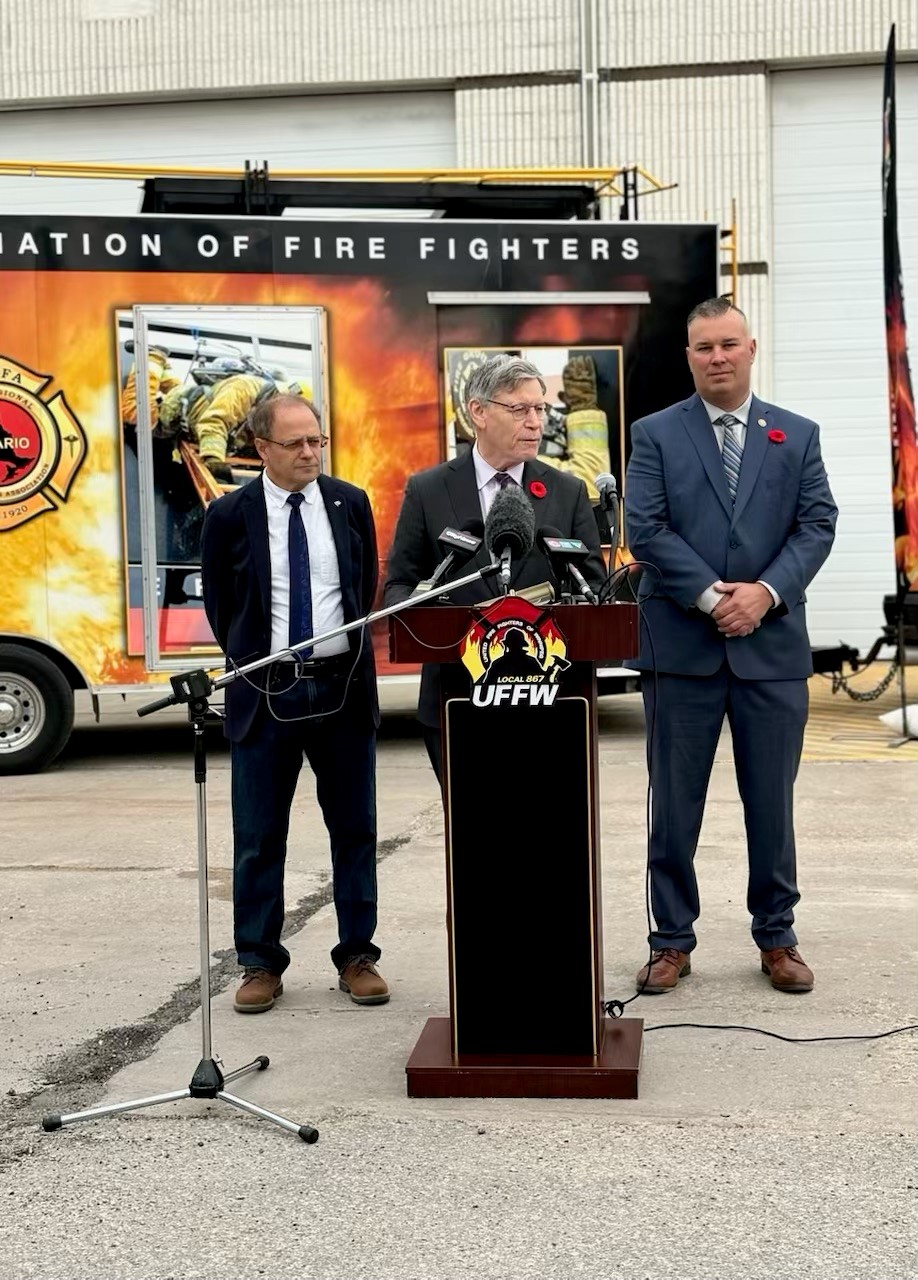Federal government invests $12 million in prevention and treatment of cancer for firefighters
Advertisement
Health Canada will invest $12.29 million over five years plus $220,000 annually in perpetuity for the prevention and treatment of cancer for firefighters and to advance firefighter health and safety.
“Every day, firefighters put their lives at risk to save ours. Their dangerous work comes with an increased risk of cancer, and we need to address that. That’s why we’re announcing new measures to better prevent, detect and treat cancers linked to firefighting. We all need to work together to ensure those that keep us safe are protected,” said Minister of Health Mark Holland.
In 2023, the National Framework on Cancers Linked to Firefighting Act was passed and directed the minister of health to develop a national framework to raise awareness of cancers linked to firefighting and to improve access for firefighters to cancer prevention and treatment.

A national framework on cancers linked to firefighting was developed in accordance with the act consisting of representatives from the provincial and territorial governments responsible for health, municipal governments, Indigenous governing bodies, health care professionals, scientists, and stakeholders in the firefighting community.
The act also calls for a report to be released in 2029 on the effectiveness of the framework and the state of prevention and treatment of cancers linked to firefighting.
“This is an important framework and it helps with a national plan up to now it’s basically been the provinces doing their own thing. This gives us a national plan and national framework,” said Steinbach fire chief Kelvin Toews.
Cancer accounts for more than 85 percent of duty fatality claims among Canadian firefighters, who have a nine percent higher risk of a cancer diagnosis and a 14 percent higher risk of dying from cancer than the general public.
There is enough evidence that firefighting causes mesothelioma and bladder cancer, and limited evidence that it causes colon cancer, prostate cancer, testicular cancer, melanoma of the skin, and non-Hodgkin’s lymphoma.
Toews said a lot has changed in the 32 years that he’s been a firefighter. He said previously firefighters with soot on their gear and faces was seen as “a badge of honour,” but now times have changed. There is an awareness campaign at the fire hall that promotes the cleaning of gear and the body after every structure fire and wearing a breathing apparatus even when doing an overhaul.
“It’s an inherently dangerous job. We don’t know most of the time what the products are that are burning, so we need to protect ourselves.”
The framework will focus on raising awareness, sharing of information, generating scientific knowledge, and developing guidance and addressing training needs.
A national advisory group will be established consisting of government, Indigenous partners, and other key stakeholders, such as the Canadian Association of Fire Chiefs. Health Canada will also develop online information on health relevant to firefighters.
The government will also establish a national firefighter cancer registry, led by Statistics Canada. The registry will track the health of firefighters over time to better understand cancer occurrences and deaths.
Health Canada will also conduct research on cancers for underrepresented sub-populations of firefighters, such as woodland firefighters or female firefighters.
A report that surveyed firefighters, found frustrations with the healthcare system, especially regarding a lack of awareness among physicians regarding a firefighter’s increased cancer risks.
The new framework is expected to support the development of a guide for diagnostic testing and to provide new tools to in training doctors and nurses. It’s hoped the move will lead to earlier diagnoses.
“I think it’s a good start. I’m not sure that when it gets started that $12 million will be enough but it’s a good start,” said Towes. “We’re on the road to identifying problems and more research costs a lot of money and once you start with the research $12 million probably won’t go that far, but again it’s a good start.”
In Canada, there are more than 126,000 firefighters working in rural, urban, and wildland settings to respond to fire, weather-related, and medical emergencies each day, of which 70 percent are volunteers.
